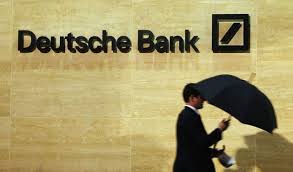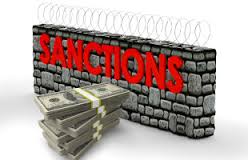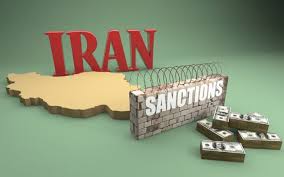Deutsche Bank and Sanctions Violations: More to Come
 Deutsche Bank agreed to pay $258 million and fire six employees to resolve a New York and Federal Reserve investigation for sanctions violations from 1999 to 2006. The settlement is big news but ignores three key players who are continuing to investigate Deutsche Bank: the Justice Department; the Treasury Department’s Office of Foreign Assets Control (“OFAC”); and the Manhattan District Attorney’s Office.
Deutsche Bank agreed to pay $258 million and fire six employees to resolve a New York and Federal Reserve investigation for sanctions violations from 1999 to 2006. The settlement is big news but ignores three key players who are continuing to investigate Deutsche Bank: the Justice Department; the Treasury Department’s Office of Foreign Assets Control (“OFAC”); and the Manhattan District Attorney’s Office.
Deutsche Bank has lots of troubles right now and these three key players are investigating sanctions violations, as well as a number of other issues. Everyone should expect more significant enforcement actions down the road from these additional enforcement agencies.
Deutsche Bank is under scrutiny for foreign exchange rate collusion and price manipulation; collusion and price manipulation of precious metals; dealings with mortgage- and asset-backed securities; and inadequate vetting of $6 billion in Russian transactions, referred to as “mirror trades.”
These investigations, in combination, raise more than enough concerns about any semblance of compliance at Deutsche Bank. To suggest that compliance plays any role at the bank is on its face laughable.
Add Deutsche Bank to the list of major offenders who have embraced a systemic ignorance of ethics and compliance. The bank, which is reeling already with new leadership being brought in, has a number of serious challenges that will take years to overcome.
The facts underlying the New York and Federal Reserve settlement display an overriding concern with financial benefits at the expense of any attention to legal or regulatory compliance.
Email traffic, cited in the settlements, showed how employees used various “tricks” to move money in and out of Iran, Libya, Syria, Myanmar and Sudan. The bank’s European staff resisted US staff’s attempts to ensure compliance. Surprisingly, European staff confided in customers that they were violating US law.
Over a seven-year period, the bank conducted over 27,000 illegal dollar-clearing transactions valued at over $10 billion.
European employees used techniques such as wire stripping and creating separate payment messages to keep information out of US bank employees hands. On occasion, employees conducted the transactions manually to avoid potential screening of illegal transactions. Clients were instructed to use code words in documents and emails to avoid potential problems.
One specific email cited says it all:
Let’s not revert to the client in writing due to the reputational risk involved if the e-mail goes to wrong places. Someone should call [the client] and tell them orally and ensure that the conversation is not taped. . . . Let’s also keep this e-mail strictly on a ‘need-know’ basis, no need to spread the news…what we do under OFAC scenarios.
 Staff handbooks even contained information on how to avoid detection by US staff of illegal transactions:
Staff handbooks even contained information on how to avoid detection by US staff of illegal transactions:
Special attention has to be given to orders in which countries/institutes with embargos are involved. Banks under embargo of the US (e.g., Iranian banks) must not be displayed in any order to [Deutsche Bank New York] or any other bank with American origin, as the danger exists that the amount will be frozen in the USA.
The bank’s policy was to circumvent known US laws prohibiting such transactions. Rest assured, DOJ, OFAC, and the Manhattan District Attorney’s Office will have a lot to say on this issue in the coming months.















1 Response
[…] Source: blog.volkovlaw.com […]